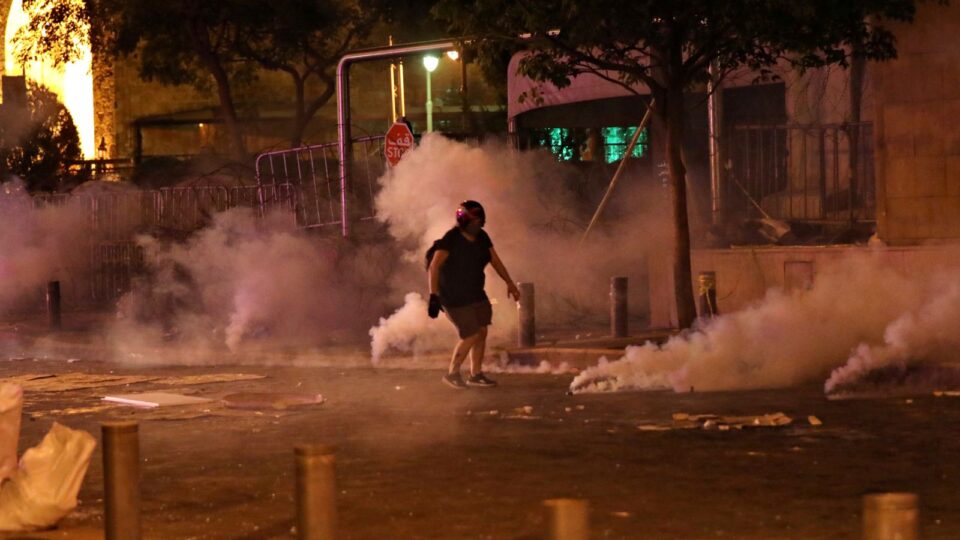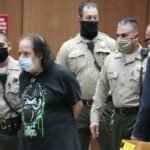Protests erupt as Lebanon’s leaders blamed for deadly blast
The country is struggling to cope as 300,000 people were made homeless by the blast after months of financial crisis.
Protests have erupted in Beirut as residents blame Lebanon’s leaders for the deadly explosion that killed at least 145 people.
Dozens of protesters threw stones at security forces and set tyres on fire near the country’s parliament in central Beirut on Thursday evening.
They were eventually pushed back after security forces, including army soldiers, fired a few rounds of tear gas to disperse the crowd.

Hours before, locals used French president Emmanuel Macron’s visit to let the world know they want political reform in a country that was already struggling with economic and political crises.
Mr Macron visited the capital’s port that was devastated on Tuesday after 2,750 tonnes of ammonium nitrate set off a massive explosion that left 300,000 people – more than 12% of Beirut’s population – homeless, and thousands injured.
Lebanon’s customs chief said the cabinet was previously warned by a security agency that the stockpile of chemicals, confiscated from an impounded Russian cargo ship in 2013, was dangerous.
The report has compounded anger as few people can rebuild homes and businesses, with unemployment and poverty having already mounted during the financial crisis blamed on the government.

As Mr Macron visited one of the worst-hit residential areas in France’s former colony, a crowd gathered around him and shouted their anger, using slogans including “revolution!” and “the people want to bring down the regime” – a line used at mass protests last year.
Presenting himself as a champion for the Lebanese people, he told the crowd in Gemmayze he would propose “a new political pact” to the government and said French aid would “not go into the hands of corruption”.
One woman shouted at Mr Macron: “You are sitting with warlords. They have been manipulating us for the past year.”
He replied: “I’m not here to help them. I’m here to help you.”
The pair then hugged.

Mr Macron announced France will organise a conference in the next few days with European, American, Middle Eastern and other donors to raise money for food, medicine, housing and other urgent aid.
He warned Lebanon’s political elite he would not give “blank cheques to a system that no longer has the trust of its people” and called on them to create a “new political order”.
Lebanon’s president, Michel Aoun, visited the port with other colleagues but no leading politicians have visited the neighbourhoods damaged by the blast.
Beirut’s hospitals are struggling to deal with the wounded more than 48 hours after the blast, with fears of a coronavirus spike adding to the devastation.
Four-month-old Sophie Ajoury, one of the youngest survivors, was fighting for her life in one hospital after suffering head injuries as her mother breastfed her near a window when the explosion happened.
The United Nations said it was releasing $9 million (£6.7m) from its emergency fund to support hospitals and intensive care units, while European, Arab and Asian countries are sending doctors, medical supplies or field hospitals.
Over the past few years, the international community has been reluctant to offer support to the notoriously dysfunctional government where corruption is rife and basic services like rubbish collection are a mess.

The investigation into the blast is focusing on how the ammonium nitrate came to be stored in the port and why it was never dealt with, with the president promising punishment for whoever is responsible.
Sixteen port employees have been detained and 18 port and customs officials in charge of the warehouse’s maintenance have been questioned so far, lead investigator and military judge Fadi Akki said.
The port’s general manager, Hassan Koraytem, and former works and transport minister Ghazi Aridi, will be interviewed on Friday, a person familiar with the investigation said.
This article was first published in Sky News





